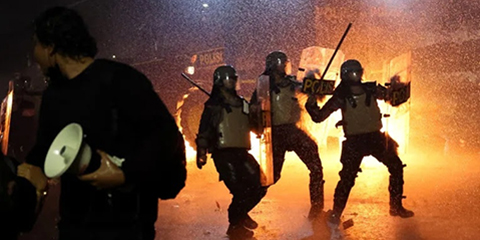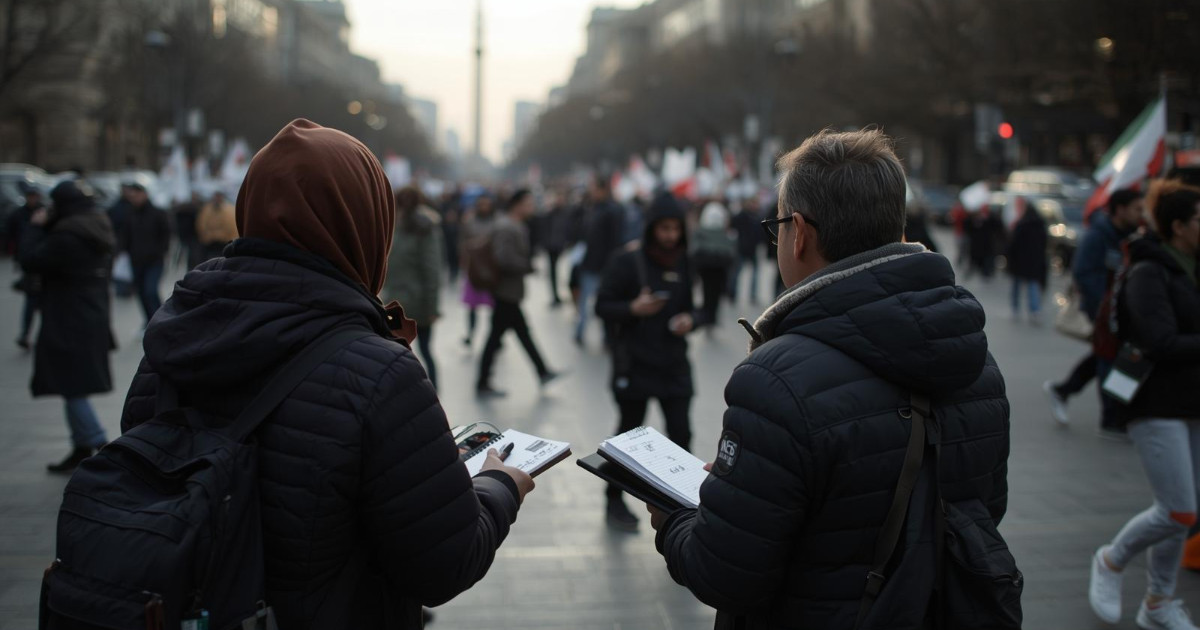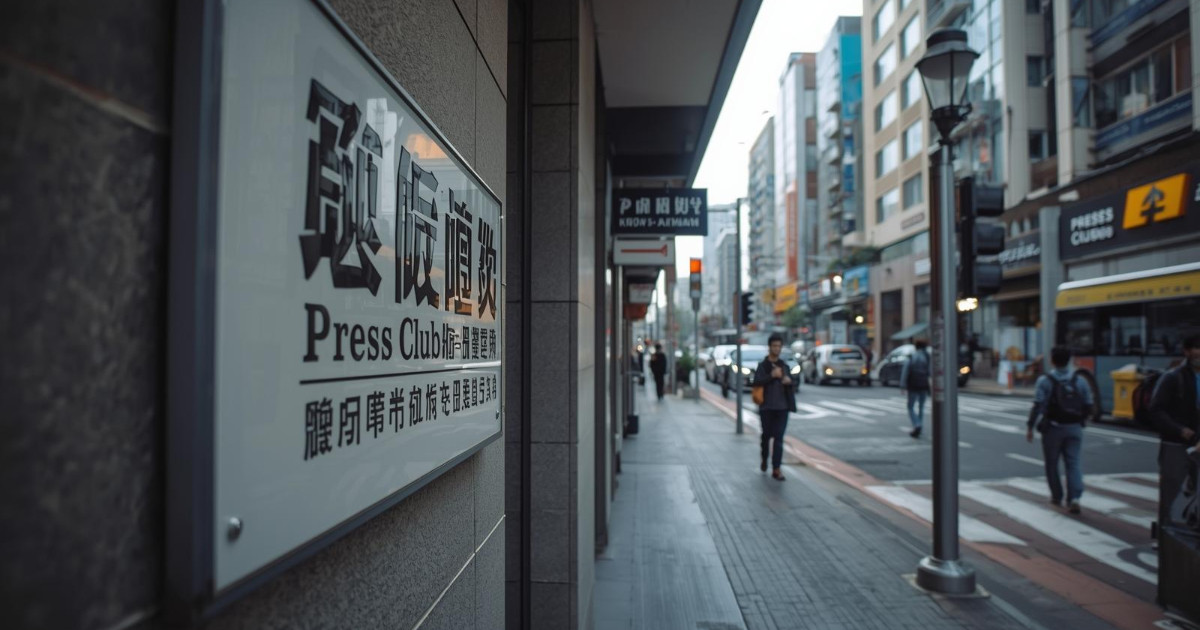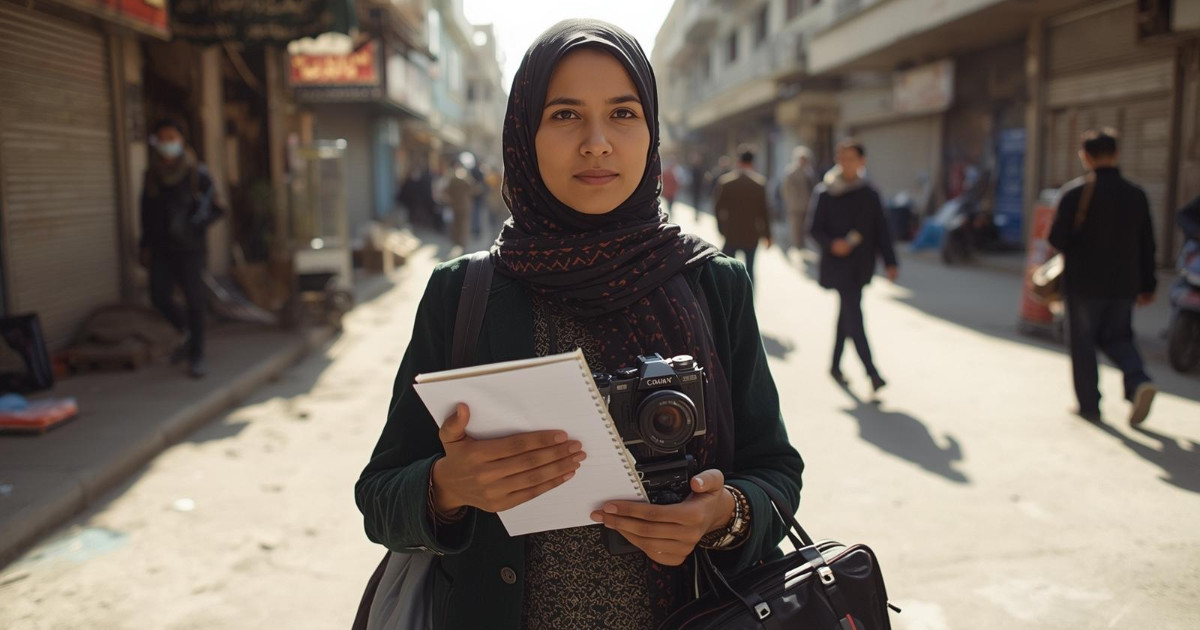Many journalists attacked while covering anti-military protests in Indonesia
JournalismPakistan.com | Published: 27 March 2025 | CPJ News Alert
Join our WhatsApp channel
Violent clashes erupted in Indonesia as police assaulted journalists covering anti-military protests. The Committee to Protect Journalists demands accountability for the attackers.Summary
BANGKOK—Indonesia must identify and bring to account police officers who forced two journalists — one of whom they beat on the head — to delete photos and videos they shot during a protest on March 24, the Committee to Protect Journalists said Thursday.
About 1,000 demonstrators threw stones and clashed with police, who responded with water cannons, in the eastern city of Surabaya over a new law that increases the power of the military.
“It is the Indonesian government’s responsibility to protect, not assault, working journalists who are covering protests,” said Shawn Crispin, CPJ’s senior Southeast Asia representative. “These types of assaults on the free press must stop now.”
Rama Indra, a journalist with the local digital outlet Beritajatim, told CNN that several police officers forced him to stop filming them beating protesters and hit his head with their hands and a wooden stick to make him delete his footage. They also confiscated his cell phone, even though he identified himself as a journalist and presented his press ID card. He reported the incident to the police.
Police also forced Wildan Pratama, a journalist with the local digital outlet Suara Surabaya, to delete his photos of about 25 arrested protesters at the same site.
The military law has triggered protests across Indonesia, with some fearing a return to military rule.
On March 23, at least eight student journalists were assaulted by police and military forces while documenting a similar protest in the East Java city of Malang, according to a local Tempo report.
CPJ’s emailed requests to the Surabaya police and Presidential Communications Office for comment did not receive immediate replies.
Photo caption: Police in riot gear during a protest outside Indonesia's parliament in the capital Jakarta on March 27. Several journalists have been attacked by the police while covering similar protests over a new military law in other Indonesian cities. (Photo: Reuters/Ajeng Dinar Ulfiana)
انڈونیشیا میں Ùوج مخال٠مظاÛروں Ú©ÛŒ کوریج کرنÛ' والÛ' کئی صØاÙیوں پر ØملÛ
بینکاک— کمیٹی ٹو پروٹیکٹ جرنلسٹس Ù†Û' جمعرات Ú©Ùˆ Ú©Ûا Ú©Û Ø§Ù†ÚˆÙˆÙ†ÛŒØ´ÛŒØ§ Ú©Ùˆ ان پولیس اÛلکاروں Ú©ÛŒ شناخت کر Ú©Û' ان Ú©Û' خلا٠کارروائی کرنی چاÛÛŒÛ' جنÛÙˆÚº Ù†Û' دو صØاÙیوں کو، جن میں سÛ' ایک Ú©Û' سر پر مارا گیا، زبردستی ان Ú©ÛŒ اØتجاجی کوریج Ú©ÛŒ تصاویر اور ویڈیوز ڈیلیٹ کروائیںÛ"
مارچ چوبیس Ú©Ùˆ مشرقی Ø´Ûر سورابایا میں تقریباً 1000 مظاÛرین Ù†Û' ایک نئÛ' قانون Ú©Û' خلا٠اØتجاج کیا، جو Ùوج Ú©Ùˆ مزید اختیارات دیتا ÛÛ'Û" پولیس Ù†Û' پانی Ú©ÛŒ توپوں سÛ' جواب دیا Ø¬Ø¨Ú©Û Ù…Ø¸Ø§Ûرین Ù†Û' پتھراؤ کیا اور جھÚ'پیں ÛوئیںÛ"
سی Ù¾ÛŒ جÛ' Ú©Û' سینئر جنوب مشرقی ایشیا Ú©Û' نمائندÛ' شان کرسپن Ù†Û' Ú©Ûا، "انڈونیشیا Ú©ÛŒ Øکومت Ú©ÛŒ Ø°Ù…Û Ø¯Ø§Ø±ÛŒ ÛÛ' Ú©Û ÙˆÛ Ø§Øتجاجی کوریج کرنÛ' والÛ' صØاÙیوں Ú©Ùˆ تØÙظ دÛ'ØŒ Ù†Û Ú©Û Ø§Ù† پر ØÙ…Ù„Û Ú©Ø±Û'Û" آزاد صØاÙت پر ایسÛ' ØملÛ' Ùوراً بند ÛونÛ' چاÛئیںÛ""
مقامی ڈیجیٹل نیوز آؤٹ لیٹ برتا جاتیم Ú©Û' صØاÙÛŒ راما اندرا Ù†Û' سی این این Ú©Ùˆ بتایا Ú©Û Ù¾ÙˆÙ„ÛŒØ³ Ú©Û' کئی اÛلکاروں Ù†Û' انÛیں اØتجاج Ú©ÛŒ Ùلم بندی روکنÛ' پر مجبور کیا، ان Ú©Û' سر پر Ûاتھ اور Ù„Ú©Ú'ÛŒ Ú©Û' ÚˆÙ†ÚˆÛ' سÛ' مارا اور زبردستی ان Ú©ÛŒ Ùوٹیج ڈیلیٹ کروائیÛ" انÛÙˆÚº Ù†Û' پولیس Ú©Ùˆ اپنی صØاÙتی شناخت ظاÛر کی، لیکن پھر بھی ان کا موبائل Ùون ضبط کر لیا گیاÛ" انÛÙˆÚº Ù†Û' اس واقعÛ' Ú©ÛŒ پولیس میں شکایت درج کرائی ÛÛ'Û"
اسی مقام پر پولیس Ù†Û' مقامی ڈیجیٹل نیوز آؤٹ لیٹ سوارا سورابایا Ú©Û' صØاÙÛŒ ولدان پرتاما Ú©Ùˆ بھی مجبور کیا Ú©Û ÙˆÛ Ø§Ù† 25 گرÙتار مظاÛرین Ú©ÛŒ تصاویر ڈیلیٹ کر دیں جنÛیں ÙˆÛ Ú©ÛŒÙ…Ø±Û' میں قید کر رÛÛ' تھÛ'Û"
ÛŒÛ Ù†ÛŒØ§ Ùوجی قانون پورÛ' انڈونیشیا میں مظاÛروں Ú©Ùˆ جنم دÛ' رÛا ÛÛ'ØŒ اور Ú©Ú†Ú¾ لوگوں Ú©Ùˆ Ø®Ø¯Ø´Û ÛÛ' Ú©Û Ù…Ù„Ú© Ø¯ÙˆØ¨Ø§Ø±Û Ùوجی Øکمرانی Ú©ÛŒ طر٠جا سکتا ÛÛ'Û"
مارچ تئیس Ú©Ùˆ مشرقی جاوا Ú©Û' Ø´Ûر مالانگ میں اسی Ø·Ø±Ø Ú©Û' ایک اØتجاج Ú©ÛŒ رپورٹنگ کرنÛ' والÛ' Ú©Ù… از Ú©Ù… آٹھ Ø·Ù„Ø¨Û ØµØاÙیوں پر بھی پولیس اور Ùوجی اÛلکاروں Ù†Û' ØÙ…Ù„Û Ú©ÛŒØ§ØŒ جیسا Ú©Û Ù…Ù‚Ø§Ù…ÛŒ اخبار ٹیمپو Ù†Û' رپورٹ کیا ÛÛ'Û"
سی Ù¾ÛŒ جÛ' Ù†Û' سورابایا پولیس اور صدارتی مواصلاتی دÙتر Ú©Ùˆ تبصرÛ' Ú©Û' Ù„ÛŒÛ' ای میل بھیجی، لیکن Ùوری طور پر کوئی جواب موصول Ù†Ûیں ÛواÛ"
تصویر کا کیپشن: انڈونیشیا Ú©Û' دارالØکومت Ø¬Ú©Ø§Ø±ØªÛ Ù…ÛŒÚº 27 مارچ Ú©Ùˆ پارلیمنٹ Ú©Û' باÛر مظاÛرÛ' Ú©Û' دوران پولیس Ùسادات سÛ' نمٹنÛ' Ú©Û' Ù„ÛŒÛ' مخصوص لباس میں موجود ÛÛ'Û" دیگر انڈونیشیائی Ø´Ûروں میں اسی نئÛ' Ùوجی قانون Ú©Û' خلا٠مظاÛروں Ú©ÛŒ کوریج Ú©Û' دوران کئی صØاÙیوں پر پولیس Ù†Û' ØÙ…Ù„Û Ú©ÛŒØ§ ÛÛ'Û" (تصویر: رائٹرز/ Ø¢Ú˜Ù†Ú¯ دینار الÙیانا)
KEY POINTS:
- Two journalists were forced to delete footage during a protest in Surabaya.
- Police used violence, including beating a journalist's head.
- Protests are a response to a law increasing military power.
- At least eight student journalists were assaulted in a previous incident.
- The government is responsible for protecting journalists during protests.

























